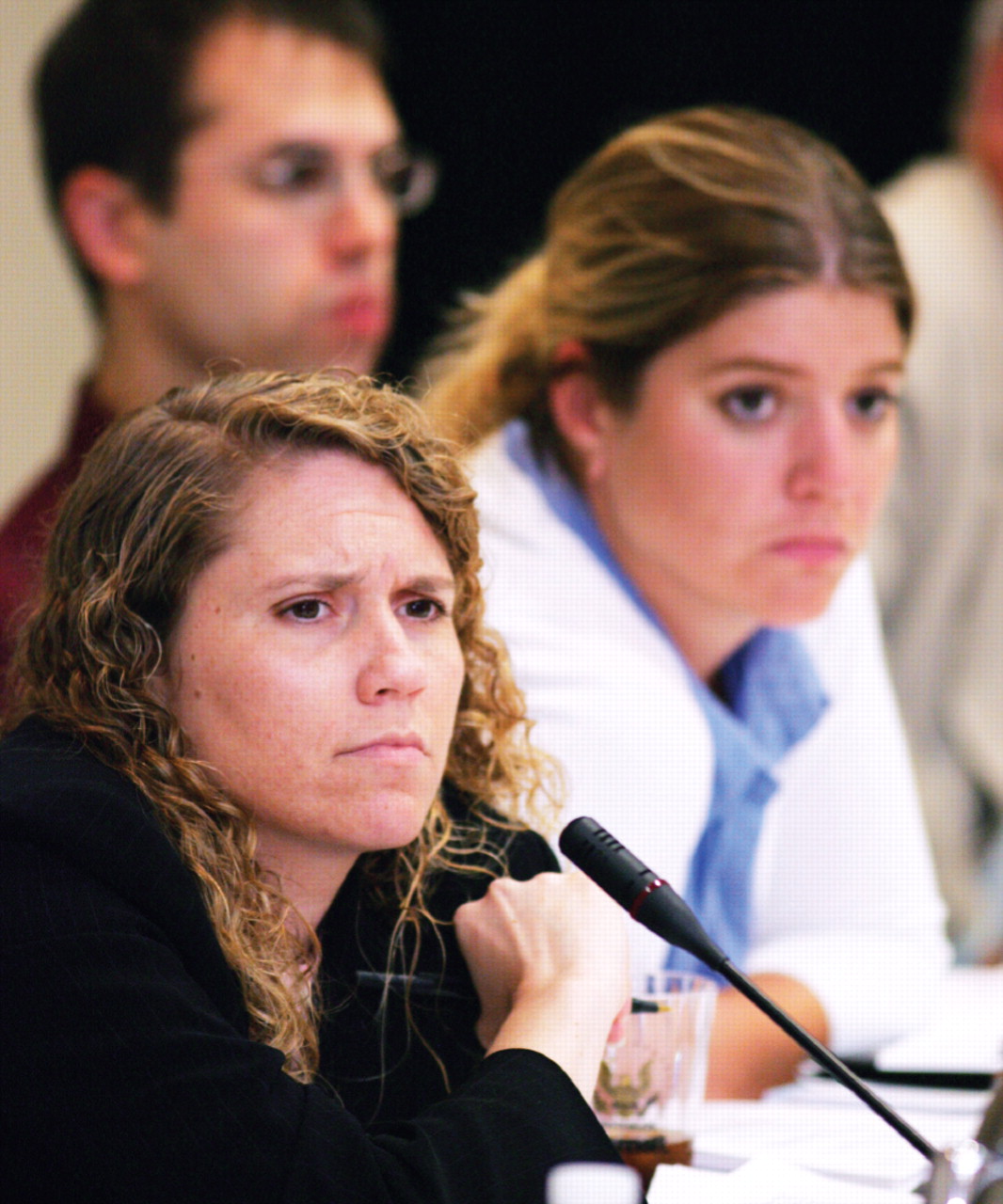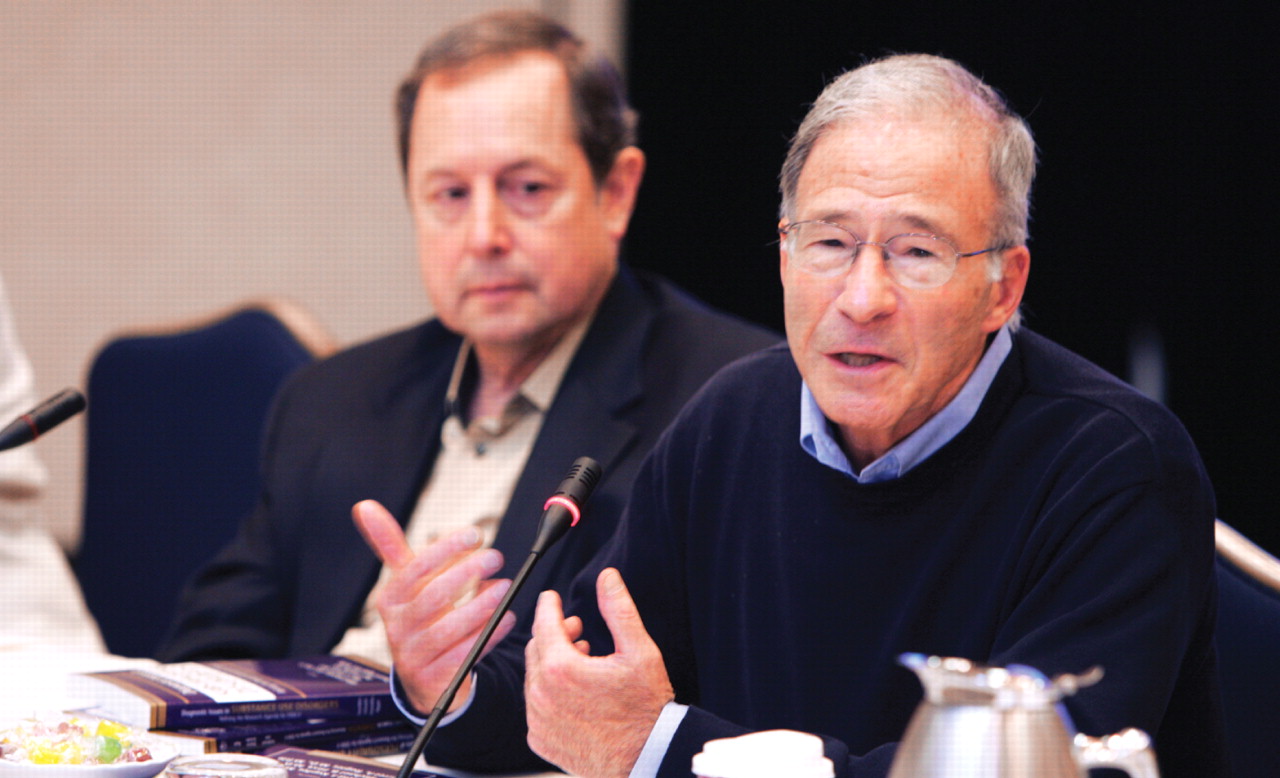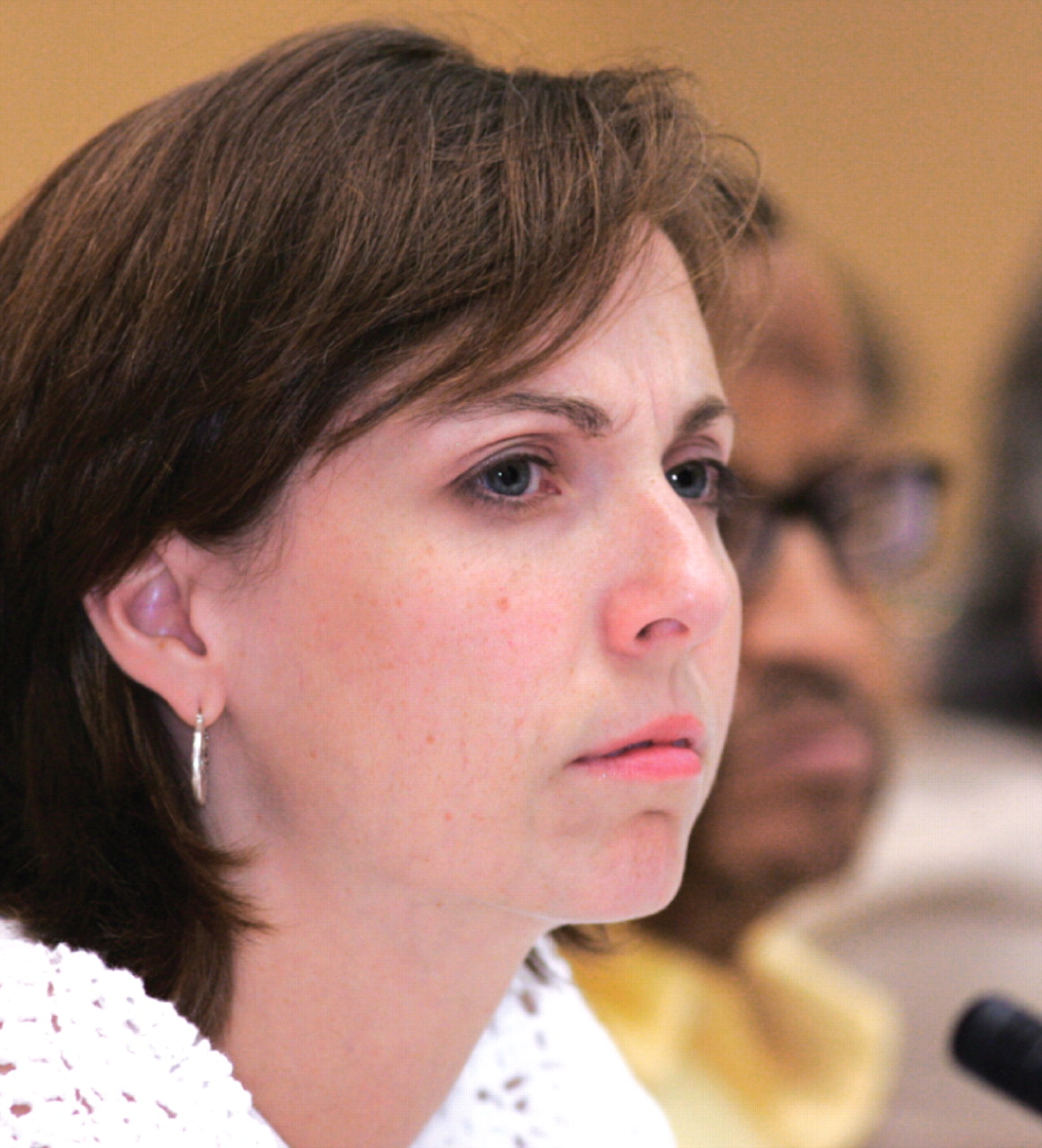Board Addresses MH Care of Combat Veterans
The APA Board of Trustees at its July meeting in Chantilly, Va., approved formation of a new component, the Committee on Mental Health Care for Veterans and Military Personnel and Their Families.
The decision to appoint the new committee stemmed from a recommendation by a Board work group chaired by Area 5 Trustee Mary Helen Davis, M.D., which suggested that such a committee could help focus attention of the Department of Defense and Department of Veterans Affairs on coordinating their mental health services. There have been media reports and congressional hearings over the last year or so that have highlighted the often fragmented nature of such services and that the programs of the two departments run on parallel tracks to the detriment of active and veteran service members. The urgency for coordination arises from a dramatically escalating need for mental health care for people who have been in combat.

Listening to a debate at last month's meeting of APA's Board of Trustees are Abigail Donovan, M.D. (left), the Board's member-in-training trustee; Molly McVoy, M.D., representative of the Committee of Residents and Fellows; and Patrick Runnels, M.D., the APA/Bristol-Myers Squibb fellow.
Credit: David Hathcox
The new committee would be a resource for assessing legislative and regulatory proposals affecting the mental health care of military personnel, veterans, and their families. The committee is also charged with developing materials to help educate these groups about mental health issues, treatment options, and how to access care and recommending ways in which APA could provide its expertise in support of active service members and veterans.
In addition, to get a better sense of the state of programs for service members who have or may have mental illness, APA President Carolyn Robinowitz, M.D., invited psychiatrists Robert Ursano, M.D., and Scott Moran, M.D., to address the Board. Ursano is a professor at the Uniformed Services University of the Health Sciences in Bethesda, Md., and Moran is a major in the Army and director of psychiatry training at Walter Reed Army Medical Center. Moran recently returned from a deployment in Iraq.
Ursano pointed out that the military's mental health care system is“ stretched,” with demand far exceeding resources. He emphasized that the quality of treatment psychiatrists provide to service members needing mental health care is “cutting edge,” but that there is little psychiatric involvement in some areas, such as trauma-related disorders, posttraumatic stress disorder, and substance use, that could benefit from more psychiatrists.

David Kupfer, M.D. (right), chair of the DSM-V Task Force, updates the Board of Trustees on the development status of the next edition of APA's diagnostic manual at the Board's July meeting. Joining Kupfer is Darrel Regier, M.D., the task force's vice chair and APA's director of research. DSM-V is scheduled for publication in 2012.
Credit: David Hathcox
He suggested that APA has a role to play in better educating its members on recognizing and treating trauma-related disorders.

ECP Trustee-at-Large Amy Ursano, M.D., listens to her father, psychiatrist Robert Ursano, M.D., talk about mental health care in the military.
Credit: David Hathcox
Moran praised the quality of care “psychiatrically injured” service members receive when they are sent to Walter Reed from the battlefields of Iraq and Afghanistan. A wide range of modalities is used by clinicians at the hospital, he said, and major resources are now being devoted to a key program on traumatic brain injury.
Steve Brasington, M.D., invited to address the Board as president of the Virginia district branch, noted that “the true challenge of military mental health care is not access, but stigma.” Brasington, who is director of mental health at Portsmouth Naval Base, said that many military personnel are convinced that if they talk to a psychiatrist they will be looked down upon by officers and their peers (see Original article: DB Officers Address Board).
In other actions the Board voted to
approve position statements on psychiatric disability evaluations by psychiatrists, patients' access to treatments prescribed by their physicians, treatment of substance abuse disorders in the criminal justice system, pharmacy benefit management, and use of jails to hold persons without criminal charges as they wait for civil psychiatric beds to become available. | |||||
conduct as a pilot project a joint membership campaign with the American Association for Geriatric Psychiatry to encourage psychiatrists with an interest in geriatrics and who belong to one of the organizations to also join the other. Psychiatrists who do so will receive a one-time 50 percent dues discount. Currently about 1,000 psychiatrists are members of both organizations. | |||||
continue examining strategies for altering the Assembly's relationship with the Board. The Board agreed to have the Assembly speaker, who is a voting member of the Board (as is the speaker-elect), work with other Board leaders to appoint a joint task force of members knowledgeable in organizational structure and function to discuss the relationship between APA's two governing bodies. The Assembly has for several years been pushing for a larger role in Board decisions. | |||||
reaffirm its position that APA should continue to advocate for accurate and appropriate language in any federal parity bill to ensure that such legislation does not preempt existing or future state laws designed to provide or maintain greater protections for patients. APA and other parity advocates have been working to eliminate provisions in versions of Senate legislation that could preempt state laws that contain more comprehensive parity provisions than the Senate legislation proposes. | |||||
increase annual meeting registration fees for members and nonmembers beginning with the 2008 meeting. Finance and Budget Committee Chair Jack Bonner, M.D., noted that even with the increase APA's registration fees are less than the average for other physician organizations. This would set the member early-registration fee at $270 and the on-site fee at $345. Nonmembers will pay an early-registration fee of $855 and an on-site fee of $905. | |||||
adopted as a resource document an APA task force report on biopsychosocial consequences of childhood violence. It points out that child trauma is a major public health problem with devastating and costly effects and describes the research in this area including how trauma and violence affect children in the short term and in adulthood. | |||||
APA position statements are posted at <www.psych.org/public_info/libr_publ/position.cfm>. Actions taken by the Board at its July meeting will be posted in the Members Corner of APA's Web site at <www.psych.org>.



